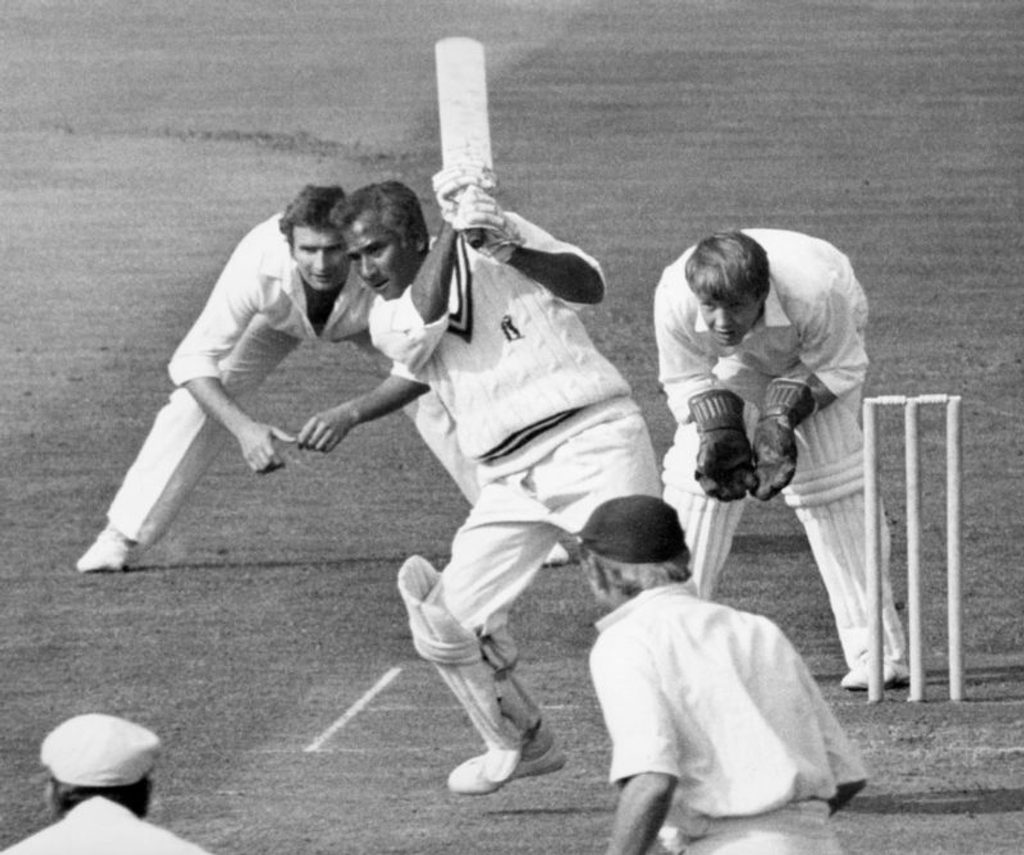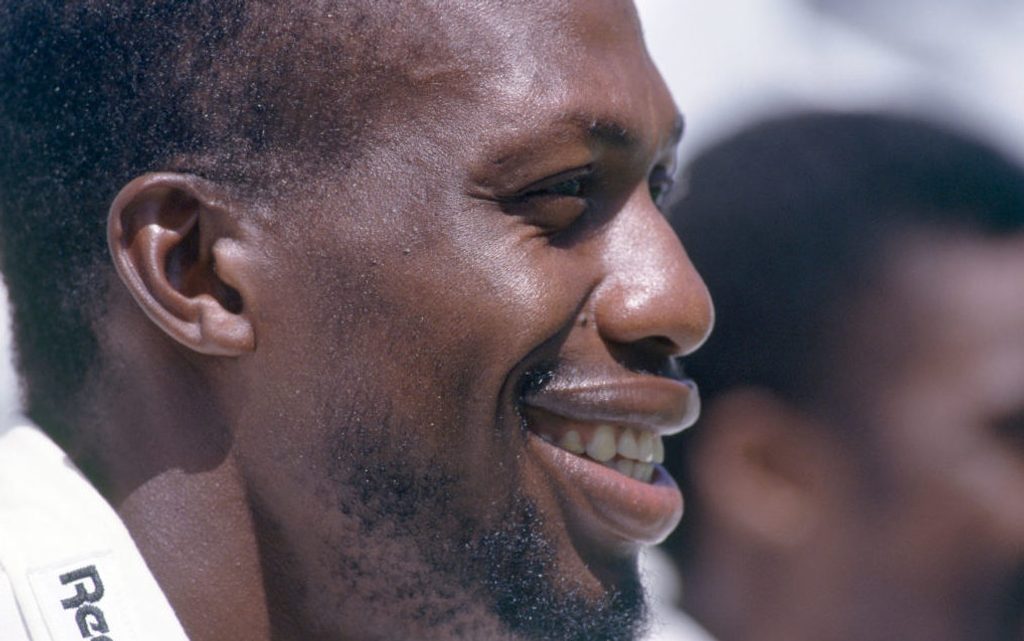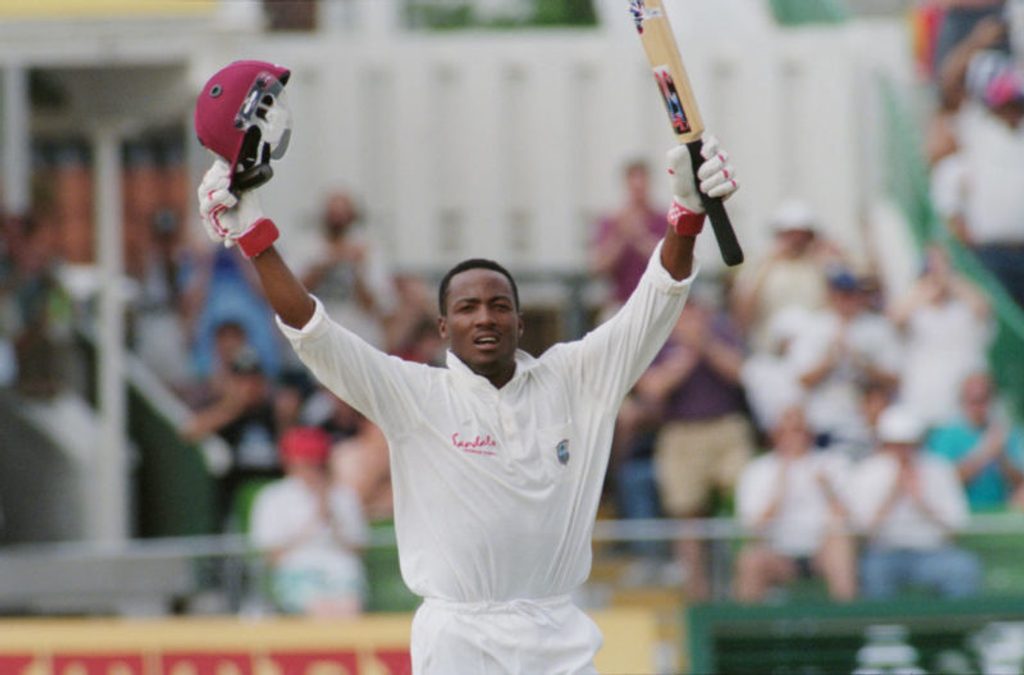
A look back at the five greatest Test matches between England and West Indies in the Caribbean.
West Indies and England have cooked up some tasty Caribbean encounters over the last century.
Home heroes such as Sir Vivian Richards, Brian Lara, Sir Garfield Sobers and Michael Holding have graced the occasion with timeless offerings over the years; the Caribbean providing fertile breeding ground for a fascinating sequence of battles between two of cricket’s historically leading forces.
Past trips to the West Indies might have struck more fear into England than what is currently the case, but as the present series gets underway, we found it necessary to recall some of the most memorable clashes between the two sides on Caribbean soil.
West Indies v England, third Test, Georgetown, 1930
England’s tour of the West Indies in 1930 was a monumental occasion. Having only officially formed their side two years prior to the series, the home side were relishing the prospect of a visit from big-hitting England.
The third Test in Georgetown held much weight as the hosts had drawn and lost the previous two, and some standout performances from the forefathers of West Indies cricket helped carve out a famous win, their first ever in Test match cricket.
In the first innings, Clifford Roach became the first West Indian to score a Test match double-century and a knock of 114 from George Headley helped the hosts to 471 all out. After skittling the English for just 145 in response, West Indies were well on top.
Headley returned for the second innings in inspired form, notching his second ton of the game to take his side to 290, meaning even England’s valiant fourth-innings 327 left the tourists 289 runs short. It was a maiden win for a side who would shake up the cricket world for years to come.
The final match of the series was drawn after a mutual decision to call it quits following nine days of play, England racking up 849 in the first innings.
West Indies v England, fourth Test, Port of Spain, 1968
1968 was probably not a series for the neutral, given that four of the five matches were draws, but the manner in which England claimed the sole victory of the tour was certainly one for the history books. In a clash between two giants of relatively similar stature, it sometimes takes a rogue decision or an unorthodox chess move to force a result – cue Sir Garfield Sobers.
West Indies batted first and declared on 526-7 , Seymour Nurse (136) and Rohan Kanhai (153) taking England to the sword with great aplomb, before 148 from the imperious Michael Colin Cowdrey dragged England back into contention, the away side managing a decent 404.
 Rohan Kanhai, picture here batting for Warwickshire, scored an excellent century
Rohan Kanhai, picture here batting for Warwickshire, scored an excellent century
With the wind in his sails, captain Sobers then bizarrely declared the West Indies’ second innings on 92-2, a plan which backfired dramatically as England became the only side to win a Test after having been on the other end of two opposition declarations. Geoffrey Boycott anchored the chase with 80 not out, while Cowdrey raced to a 75-ball 71 as England managed to reach their target of 215 just three minutes before the Test was due to end.
It was a dreadful misjudgement from Sobers, but then again, the prospect of England scoring those runs in just three hours at the end of day five would also have been hard to comprehend. Ever the entertainer though was Sobers, providing a spectacle for the fans.
West Indies v England, fifth Test, Port of Spain, 1974
Up against a fiercely competitive West Indies side that were about to embark on an era of domination, England, down to determination and sometimes luck, put up a serious fight as they went into the final Test of the five-match series only 1-0 down.
Despite Geoffrey Boycott’s typically gritty 99 on day one, England would have been disappointed to have been bowled out for 267 after being 114-1. It was a similar story for Rohan Kanhai’s men, who were 224-2 at one point as the elegant Lawrence Rowe (123) wore down the English bowling. However, thanks to Tony Greig’s stunning, career-best 8-86, England dragged themselves back into the match, dismissing the West Indies for 305.
Boycott was again to be the cornerstone behind another battling England batting display as he made his 12th Test century, with England fighting their way to a total of 263. West Indies, at 63-0, seemed favourites to chase down the 226 required for victory until the superb Greig took another five-wicket haul to knock over the home side for 199 and secure a thrilling 26-run win.
It left England with a highly creditable 1-1 draw in the series but would be the last time they would escape a series without defeat in the Caribbean until 2004.
West Indies v England, third Test, Trinidad, 1994
Already 2-0 down in the series, England went into the third Test of their tour of the West Indies under serious pressure. Having been tormented by the likes of Brian Lara, Curtly Ambrose and Winston Benjamin up to this point, Michael Atherton’s men faced the prospect of another tough task at Port of Spain.
After losing the toss, England would have been delighted with a 76-run lead after both sides’ first innings, largely thanks to the four-wicket hauls of Angus Fraser and Chris Lewis, as well as Graham Thorpe’s 86.
 Ambrose destroyed England with quick and full deliveries
Ambrose destroyed England with quick and full deliveries
Then, after Andrew Caddick’s 6-65 in the second innings helped set England 194 to win, it looked like the away side were set for an unlikely victory. Instead, what followed was one of the most embarrassing days in England’s Test history.
On an up-and-down wicket, and with Ambrose in scintillating form, England succumbed to 46 all out, their second-lowest Test total of all time. Perhaps with Ambrose’s hostile first-innings spell on their mind, England’s top order refused to come forward, with Atherton, Alec Stewart, Graeme Hick and Thorpe all caught on the crease, not to mention the comedy run-out of Mark Ramprakash.
It was a day to forget for England as the series was lost in the space of a session. They did, however, manage to win in the next Test in Bridgetown, Barbados, before Lara was to enter his name into the record books in the final Test at St. John’s.
West Indies v England, second Test, Port of Spain, 1998
During a time when the West Indies talent pool was slowly getting thinner and weaker, England saw the 1998 tour of the Caribbean as a genuine opportunity to secure a very rare series win away to the former giants of world cricket.
The first Test at Kingston was abandoned after 10.1 overs due to a dreadful and unplayable wicket on which batsmen where at risk of serious injuries. Proceedings subsequently moved onto Port of Spain, where England seized the initiative in the first half of the Test. Nasser Hussain batted for over five hours for an unbeaten 61 to take England to 214 all out.
That score seemed under par until Angus Fraser delivered arguably the finest performance of his career, taking 8-53 as the West Indies were skittled out for just 191 – a total boosted by Brian Lara’s 55. It left Michael Atherton’s men with a handy 23-run lead going into the second innings.
 Brian Lara enjoyed great success against England
Brian Lara enjoyed great success against England
Thanks mainly to Alec Stewart’s fine 73, England were well placed on 202-3 until Curtly Ambrose delivered one of his special spells to almost single-handedly turn the game on its head. He ripped the heart out of England’s middle and lower order with five wickets in under five overs to bowl the away side out for 258, and set the West Indies 282 to win.
Despite Ambrose’s heroics, it was still a stiff ask and England looked favourites when Jimmy Adams was dismissed, leaving the Windies 124-5, with Brian Lara also back in the pavilion. Carl Hooper was still there, however, and together with wicketkeeper David Williams (65), he sucked the life out of England’s hopes of a famous victory. When Williams and Ambrose were knocked over in quick succession, though, and with 23 runs still to get, England still had a sniff. Yet, it was Hooper who would be their nemesis, finishing on 94 not out as he saw his side home with three wickets to spare.
England fought back in the next Test to level the series at the same venue but the West Indies eventually ran out 3-1 winners.








